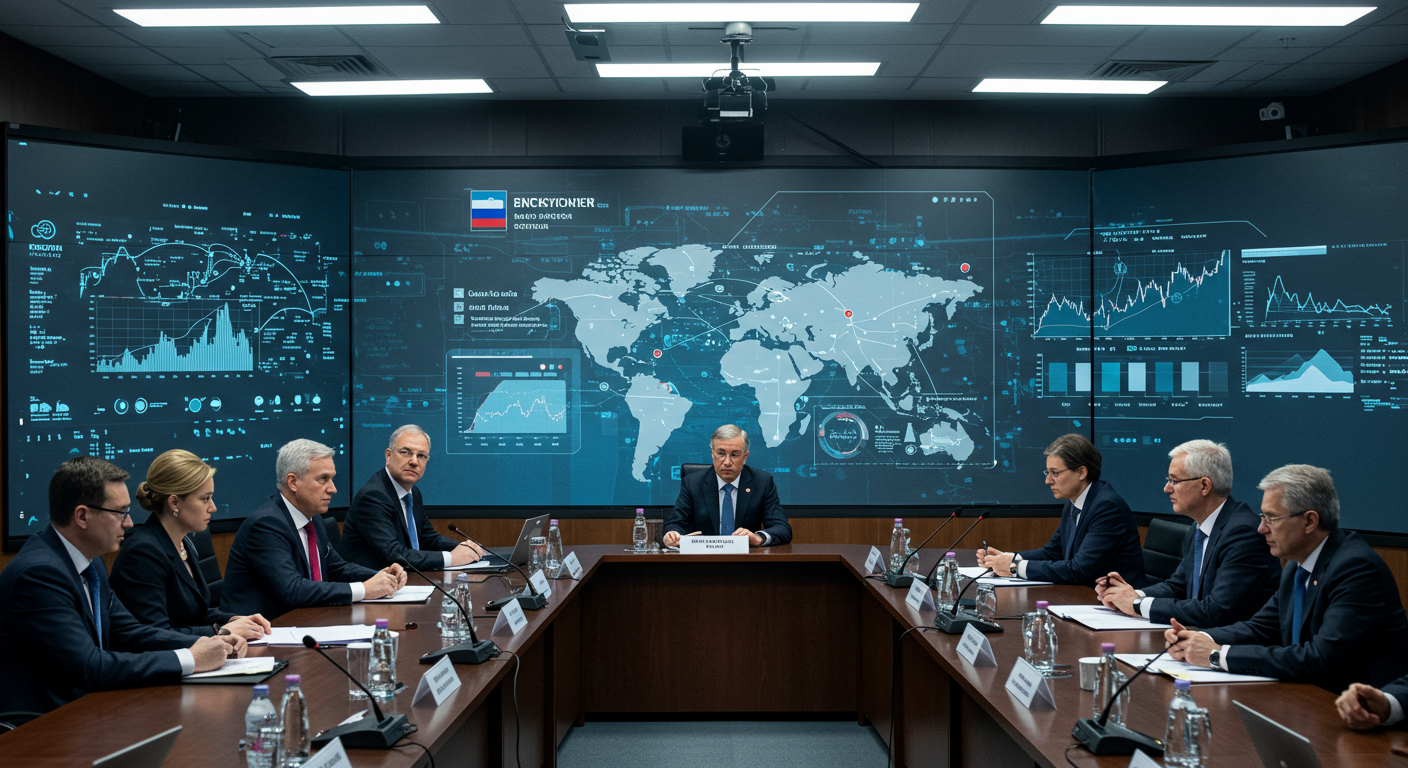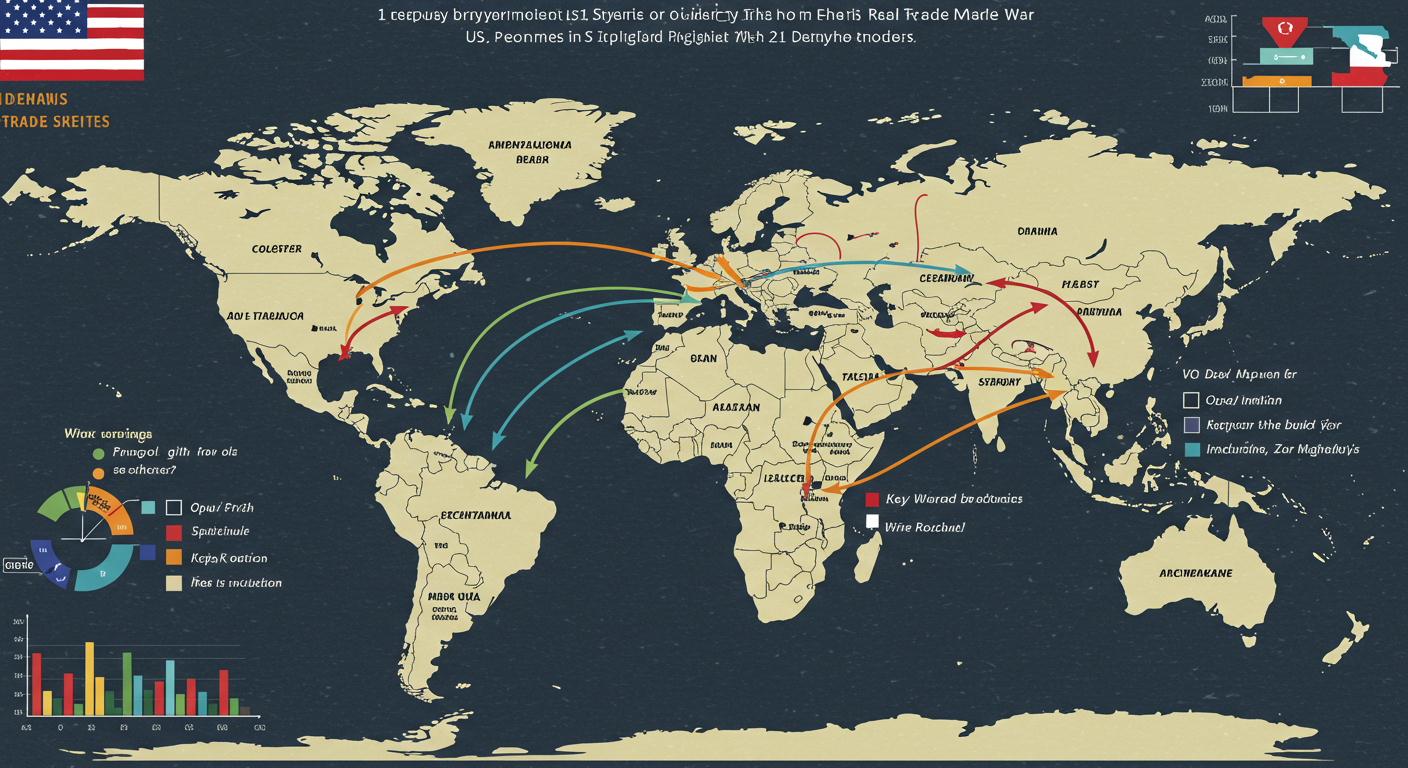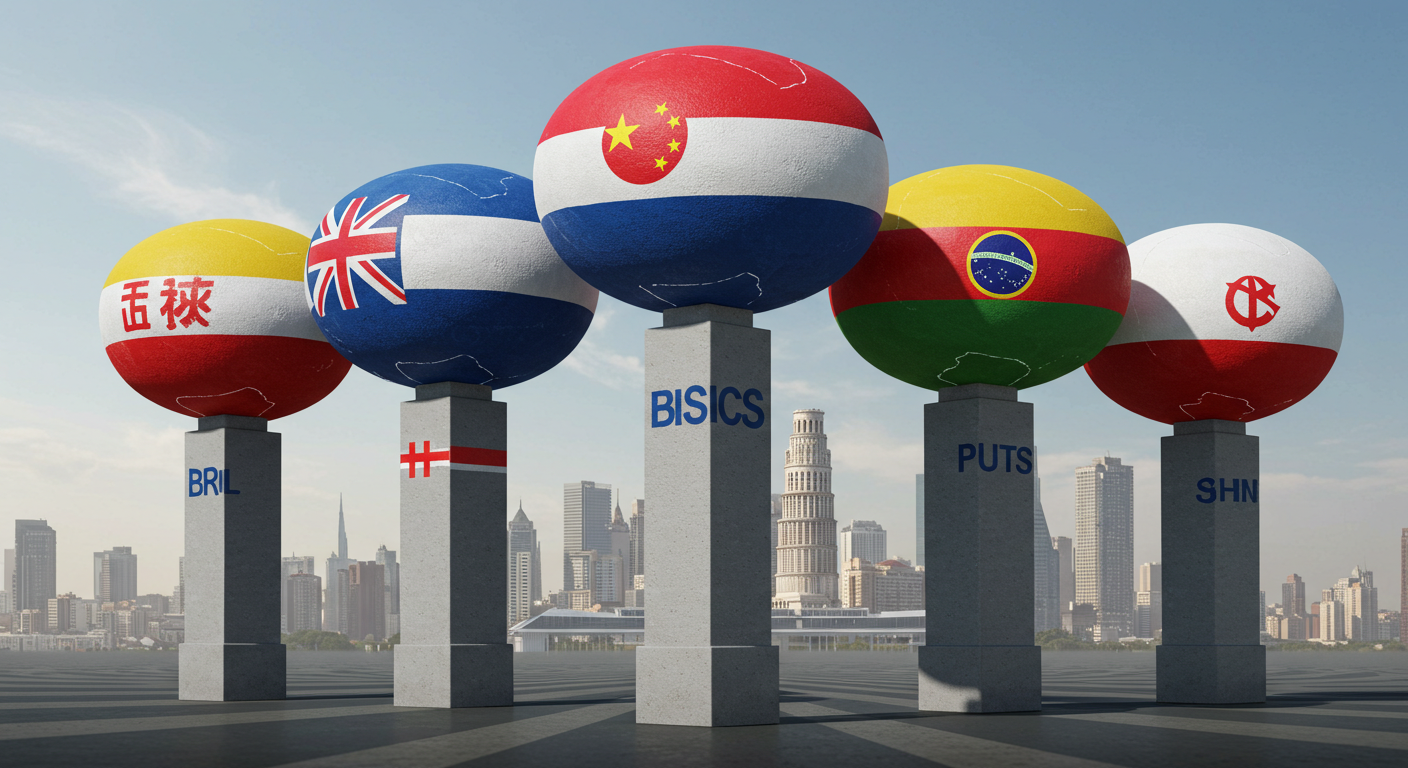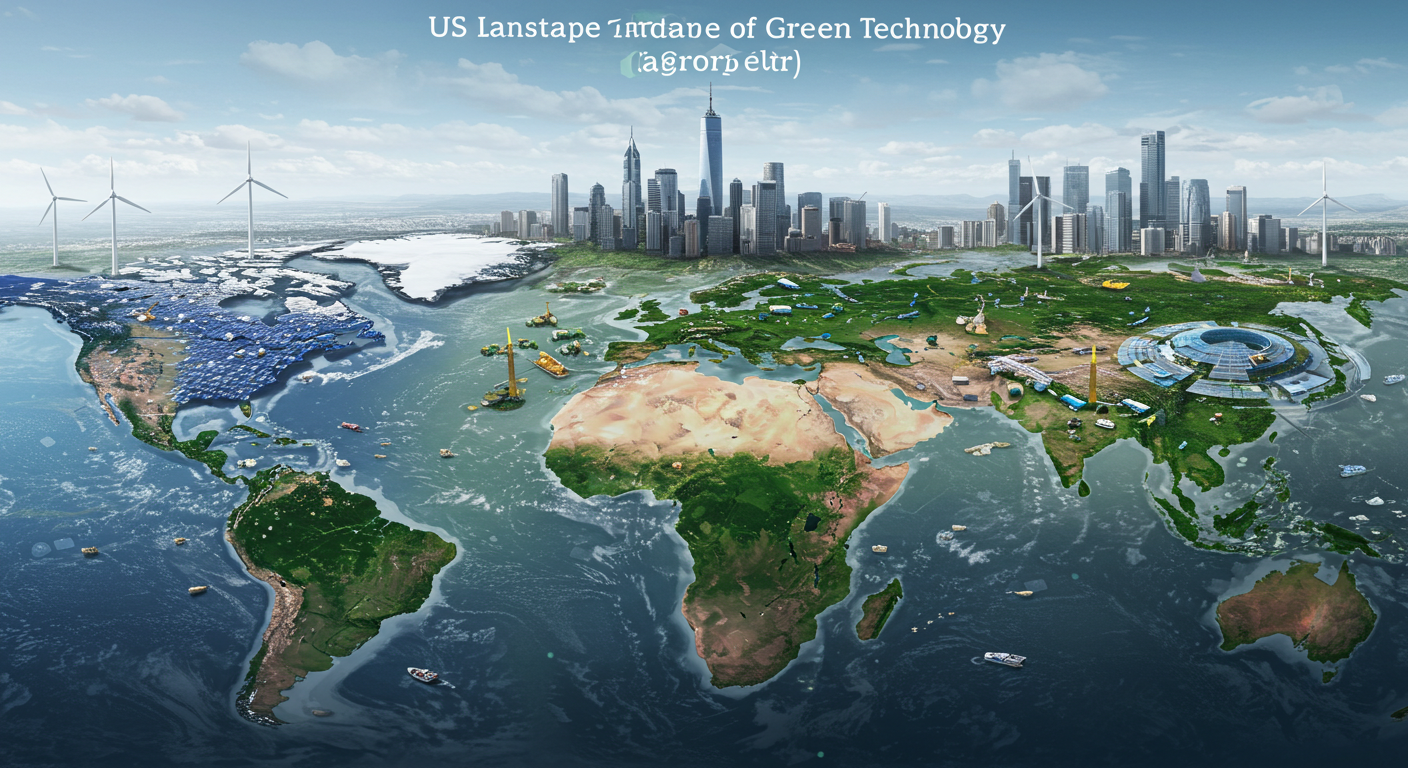Russia, Economic Sanctions, and the Reshaping of the Energy Market
In the global arena, the intersection of politics and energy has always been a dynamic one, but recent economic sanctions against Russia have dramatically reshaped the landscape, particularly within the energy market. These developments are not just shifting the power dynamics among nations but are also influencing the future of renewable energy in the US and China. As the world watches, the repercussions of these sanctions are felt across industries, governments, and consumers alike.

Understanding the importance of this topic is crucial in today’s interconnected world. With Russia being a major player in the global oil trade and natural gas exports, any geopolitical energy shifts involving the nation have significant ramifications. The imposition of economic sanctions has led to a reevaluation of international energy policy, compelling countries to rethink their energy dependencies and strategies.
This article aims to provide a comprehensive overview of how economic sanctions on Russia are reshaping the global energy market. Readers will learn about the impact on oil and gas exports, shifts in global alliances, and the potential future of renewable energy. Real-world examples and data points will help elucidate these complex concepts, offering actionable insights into the evolving energy landscape.
The Impact of Economic Sanctions on Russia’s Energy Sector
Economic sanctions have long been a tool of international diplomacy, used to exert pressure without military intervention. In the case of Russia, these measures have targeted key sectors, including energy, which is pivotal to the country’s economy. Russia’s reliance on oil and natural gas exports makes it particularly vulnerable to such sanctions, which aim to reduce its revenue streams and curb its geopolitical influence.
Oil and Gas Exports: A Vulnerable Target
The sanctions have significantly impacted Russia’s ability to export oil and natural gas. According to the International Energy Agency, Russia’s oil exports have faced substantial hurdles, with many Western nations seeking alternative sources. This has led to a realignment in the global oil trade, as countries like Saudi Arabia and the United States have increased their market share.
Natural gas exports have also been affected, especially to Europe, which traditionally relied heavily on Russian supplies. Sanctions have accelerated efforts by European nations to diversify their energy sources, investing in infrastructure to import liquefied natural gas (LNG) from other countries, including the US and Qatar.
The long-term implications of these shifts are profound. As Russia seeks new markets in Asia, particularly China, the balance of power in the energy sector is slowly changing. This realignment may lead to more competitive pricing and innovation in energy technologies, influencing global energy policies.
Geopolitical Energy Shifts and Global Alliances
The sanctions have not only affected Russia’s economy but have also reshaped geopolitical alliances. Countries are reevaluating their strategic partnerships, seeking to secure stable and reliable energy supplies in an increasingly uncertain world.
Europe’s Energy Independence
Europe’s response to the sanctions has been a concerted effort to reduce its dependency on Russian energy. The European Union has launched initiatives to promote energy independence, including increasing investments in renewable energy and improving energy efficiency. These measures are not only aimed at reducing reliance on Russian gas but also at meeting climate change goals.
Countries like Germany and France are leading the charge, with ambitious plans to expand their renewable energy capacities. This shift not only impacts the energy market but also positions Europe as a leader in the transition to a sustainable energy future.
Russia’s Pivot to Asia
In response to the sanctions, Russia has sought to strengthen ties with Asian nations, particularly China. The two countries have entered into multiple energy agreements, including long-term contracts for oil and gas supplies. This pivot to Asia represents a strategic move by Russia to offset the losses from Western markets and gain a foothold in the growing Asian energy market.
The implications of this shift are significant. As Russia and China deepen their energy partnership, the geopolitical landscape becomes more complex, with potential impacts on global trade and international relations.
The Future of Renewable Energy: Opportunities and Challenges
The reshaping of the energy market due to sanctions has also influenced the future of renewable energy in the US and China. As countries seek to diversify their energy sources and reduce reliance on fossil fuels, renewable energy presents both opportunities and challenges.
Renewables in the United States
The United States has seen a surge in renewable energy investments, driven by both government incentives and private sector innovation. Solar and wind energy have become increasingly cost-competitive, providing a viable alternative to traditional energy sources. This shift not only supports energy independence but also aligns with environmental and economic goals.
However, challenges remain, including the need for improved infrastructure and storage solutions. The transition to a renewable energy economy requires significant investment and policy support to overcome these barriers.
China’s Renewable Energy Ambitions
China, as the world’s largest energy consumer, has also embraced renewable energy as a strategic priority. The country has made significant strides in solar and wind energy, becoming a global leader in renewable energy production. China’s commitment to reducing carbon emissions and improving air quality has driven these efforts.
Despite these advancements, China faces challenges in balancing its energy needs with environmental concerns. The ongoing transition requires careful planning and international cooperation to ensure sustainable development.
Complementary Video Content
For those interested in a deeper understanding of how economic sanctions are influencing global energy dynamics, several video resources are available online. These videos offer expert analyses and visual insights into the complexities of the energy market, providing a valuable complement to the information presented in this article.
Frequently Asked Questions
How have sanctions affected Russia’s oil export market?
Sanctions have led to a decrease in Russia’s oil exports to Western countries, prompting Russia to seek new markets. This has resulted in increased exports to Asia, particularly China, altering the dynamics of the global oil trade. The shift has also encouraged Western nations to diversify their energy sources.
What are the long-term implications of Europe’s energy diversification?
Europe’s energy diversification aims to reduce reliance on Russian gas, promoting energy independence and sustainability. Long-term implications include increased investment in renewable energy, enhanced energy security, and alignment with climate goals. This transition may also lead to greater innovation in energy technologies.
Why is Russia pivoting to Asia for energy exports?
In response to Western sanctions, Russia is pivoting to Asia to secure alternative markets for its energy exports. This strategic move aims to mitigate revenue losses, strengthen economic ties with Asian countries, and tap into the growing energy demand in the region, particularly from China.
What role does renewable energy play in the current energy market?
Renewable energy is increasingly vital in the current energy market, providing a sustainable alternative to fossil fuels. It supports energy independence, reduces carbon emissions, and aligns with global climate goals. Countries like the US and China are investing heavily in renewables to diversify their energy portfolios.
How have sanctions influenced global energy policies?
Sanctions have prompted countries to reevaluate their energy policies, focusing on diversification and sustainability. This shift has led to increased investments in renewables, changes in energy supply chains, and new geopolitical alliances, impacting global energy security and trade dynamics.
Conclusion
The imposition of economic sanctions on Russia has led to significant changes in the global energy market. These measures have not only affected Russia’s economy but have also prompted shifts in international energy policy and geopolitical alliances. As countries seek to reduce their dependency on Russian energy, the emphasis on renewable energy and sustainable practices has become more pronounced.
Looking ahead, the reshaping of the energy market presents both challenges and opportunities. Nations must navigate complex geopolitical landscapes while investing in technologies that support energy independence and environmental goals. This transition requires collaboration across borders and sectors to ensure a stable and sustainable energy future.
To stay informed about ongoing developments, readers are encouraged to explore complementary topics such as the impact of renewable energy innovations on global markets, the role of energy storage solutions in the transition to renewables, and the economic implications of shifting energy policies.






